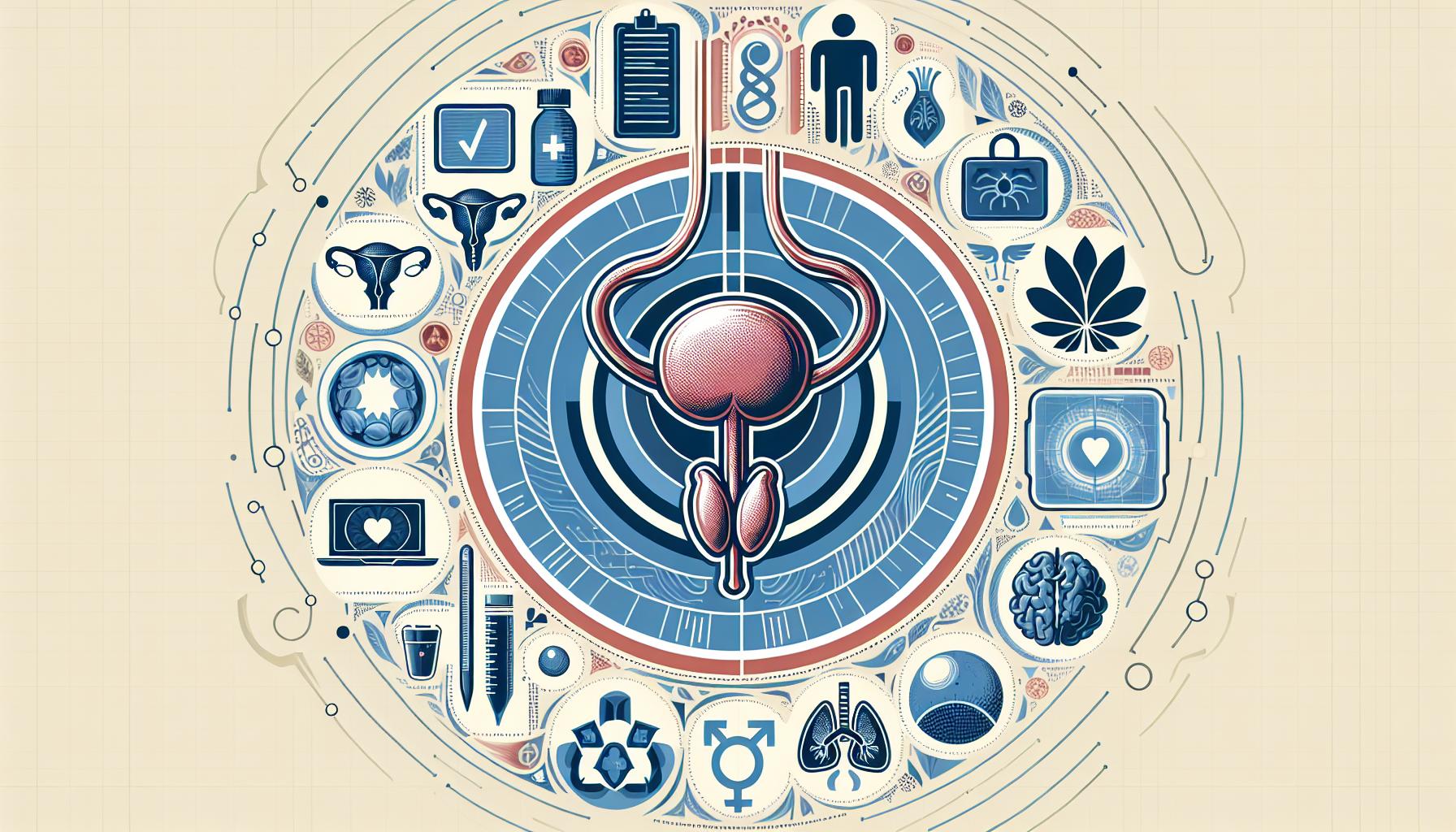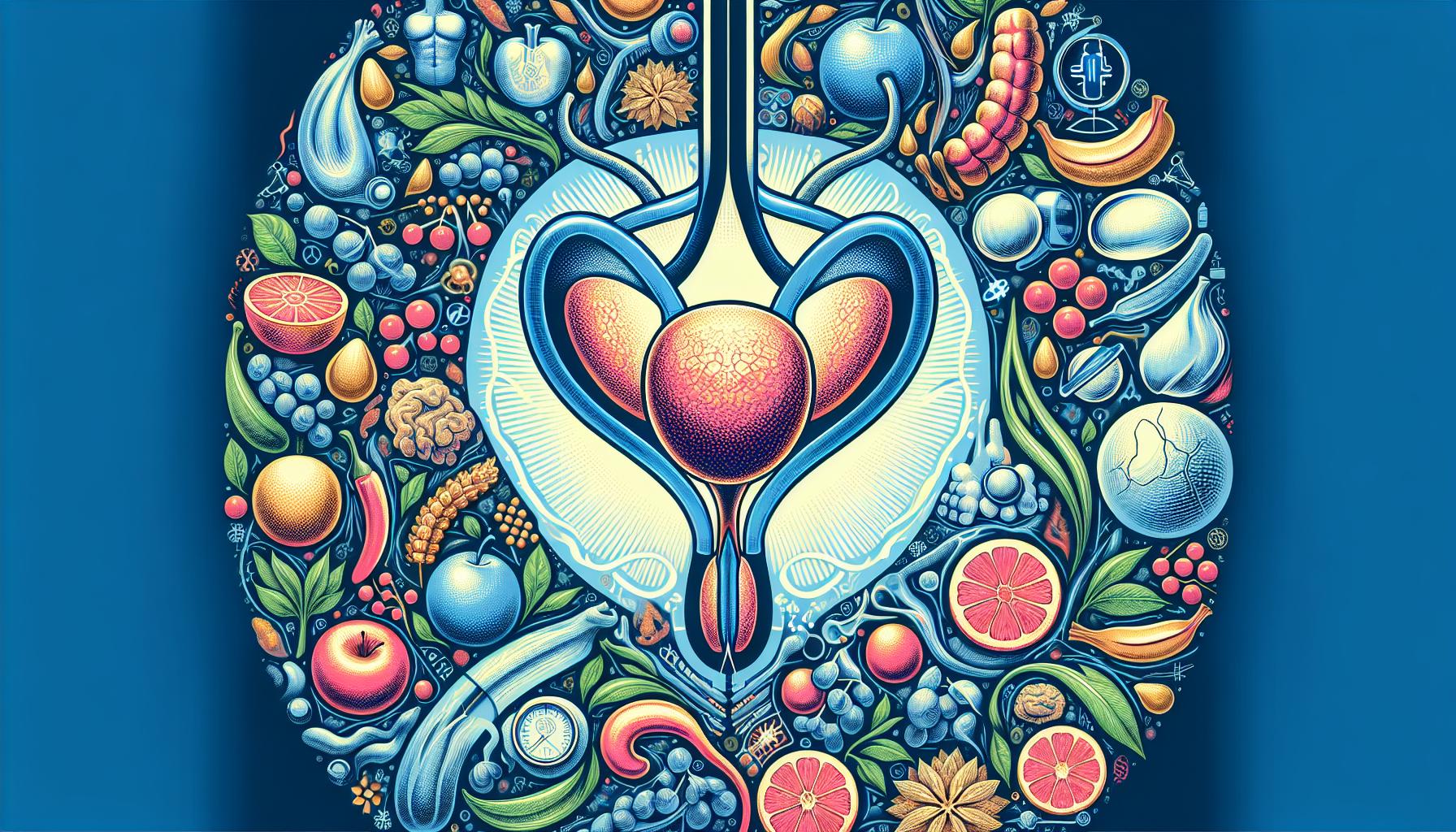
Profound Prostate Support – The Pivotal Player in Urinary Health
As we uncover the multifaceted terrain of our body’s wellness map, a crucial crossroad appears – the importance of prostate health for optimal urinary function. But, what is the connection between our prostate’s vitality and urinary health? Simply stated, the prostate is a small powerhouse organ, positioned below the bladder, that is pivotal in regulating our urinary system and sexual function. However, as we delve deeper into this article, you will realize that the prostate’s role isn’t as simple as it first appears. We’ll navigate the complex mechanics of our bodily functions, identify potential problems, and highlight practical pointers for prostate support, addressing its pivotal role in our well-being.
The Prostate’s Principal Role in Urinary Health
Overshadowed by other organs, the prostate tends to remain a quiet contributor towards our overall well-being. Despite its small size, it undertakes a substantial task – producing the seminal fluid, a key component for reproductive function. Although involved in the reproductive process, the prostate’s interplay with urinary function is often overlooked. Precisely positioned around the urethra – the duct through which urine is discharged – it’s caught up in an intricate dance with the urinary system.
Anatomical Association with Urinary System
The prostate’s unique location in the body provides it direct access to the urinary tract, which might be viewed as a double-edged sword. Whilst conducting its duty of fluid secretion, it must also maintain a delicate balance of size and shape to keep the urinary flow uninterrupted.
Challenges to Prostate Health and the Ripple Effect on Urinary Health
With age, things get a bit complicated for our wee friend, the prostate. As men near their 40s, the prostate might start to enlarge, leading to a condition called ‘Benign Prostatic Hyperplasia’ (BPH). In turn, this enlargement can squeeze the urethra, leading to unsettling urinary symptoms and disrupting the delicate dance between the two entities.
Understanding the Underlying Upsurge
Problems arise when the prostate starts to grow beyond its typical walnut-size proportion. This growth doesn’t reflect a pathology; instead, it’s a natural progression of ageing. However, it’s this insidious enlargement that can impinge on the urethra, causing unwelcome urinary implications.
How to Lend Support to Your Prostate’s Performance
So here’s the million-dollar question – how can you help your prostate to perform its significant roles effectively? The answer is twofold: first, maintain a balanced lifestyle, including proper diet and exercise; second, stay timely and regular with your health check-ups, particularly those related to prostate health.
Preventive Measures Mattered the Most
While the specifics vary, a heart-healthy diet seems to benefit the prostate. Specifically, it would help to limit processed meat and dairy products while encouraging fruits, vegetables, and healthy fats. Equally important are regular exercise and maintaining a healthy weight.
The Prostate-Urinary Connection: A Tenacious Tandem
In summation, the prostate’s pivotal role in maintaining not only our reproductive but also urinary health is unmistakable. It’s no hyperbole to term these two organ systems – the prostate and urinary tract – a resilient duo, undertaking significant tasks in unison.
Frequently Asked Questions
1. What are the symptoms of an unhealthy prostate?
Symptoms can range from frequent urination, a weak or an interrupted urine flow, the urge to urinate frequently at night, to urinary leakage.
2. Can diet affect prostate health?
Yes, diet plays a significant role in prostate health. A diet high in fruits and vegetables and low in red meat and processed food is typically suggested.
3. Can exercise improve prostate health?
Regular physical activity can contribute to general well-being and help regulate urination and lower the risk of BPH.
4. Does age affect prostate health?
Yes, due to hormonal changes that occur with age, the prostate tends to enlarge which can contribute to urinary symptoms.
5. Should I be worried about my prostate?
While the age-related enlargement of the prostate is quite normal, if you notice significant changes in urinary habits or discomfort, it is worth discussing it with your healthcare provider.


